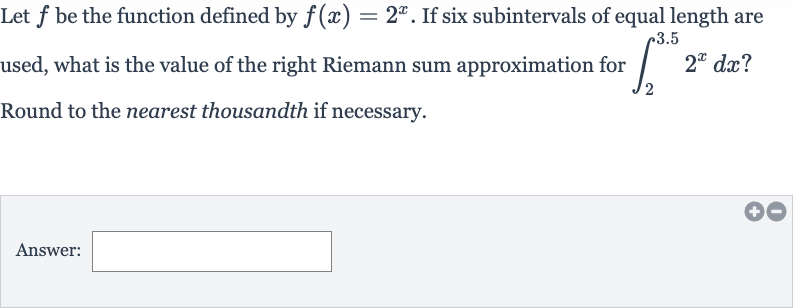Full solution
Q. Let be the function defined by . If six subintervals of equal length are used, what is the value of the right Riemann sum approximation for ? Round to the nearest thousandth if necessary.Answer:
- Determine subinterval width: Determine the width of each subinterval.The interval has a length of . Since we are using six subintervals of equal length, the width of each subinterval is .
- Calculate width: Calculate the width of each subinterval. .
- Identify right endpoints: Identify the -values for the right endpoints of each subinterval. Since we are using right Riemann sums, we need the -values at the right endpoints of each subinterval. Starting from and adding the width of each subinterval, we get the following -values: , , , , , and .
- Evaluate function at endpoints: Evaluate the function at each of the right endpoints.
- Calculate Riemann sum: Calculate the right Riemann sum approximation.Right Riemann sum = =
- Perform sum calculations: Perform the calculations to find the sum.Right Riemann sum
- Round to nearest thousandth: Round the result to the nearest thousandth.Right Riemann sum

